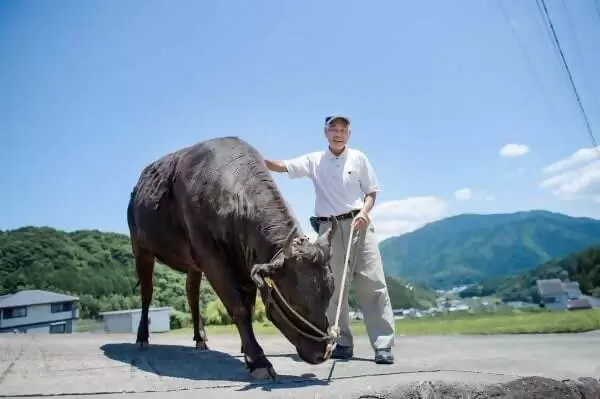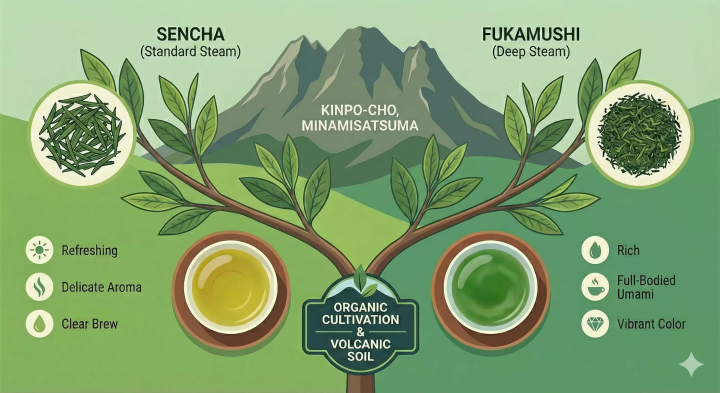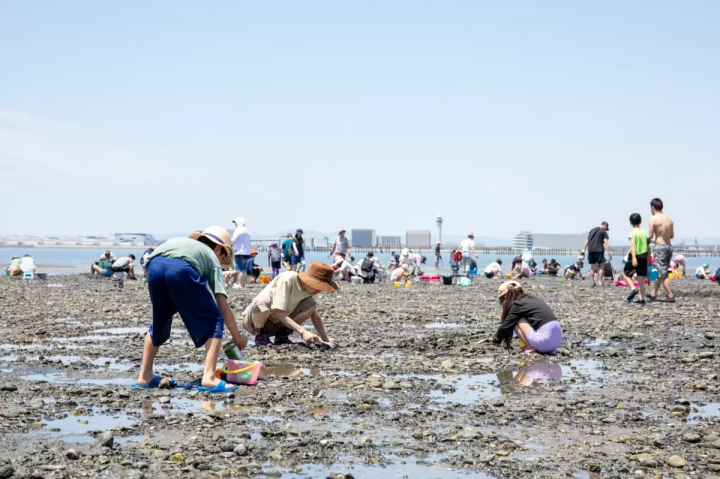Shinoharu Tatekawa's Rakugo: Enjoy Japan's Authentic Comedy in English!

Japan's quintessential comedic storytelling art is now being performed in English! Shinoharu Tatekawa gives his audiences unforgettable rakugo performances and offers them a window into this hilarious traditional art. Enjoy a show in Tokyo this year!
The traditional performing arts of Japan have an incredibly long history, and many around the world are familiar with the theater traditions of Kabuki and Noh.
Rakugo, Japan's traditional storytelling performance art, has been loved for centuries, yet due to its reliance on the linguistic expression of storytelling, it has often been perceived as somewhat inaccessible to non-Japanese speakers. Perhaps because of this, rakugo hasn’t quite attained the same level of notoriety overseas as some other Japanese performance arts.
But rakugo's humor is no longer a world limited to those who fluently speak Japanese! Now it is entirely possible to fully enjoy an authentic performance as an English speaker!
Read on to learn more about the rakugo performance in English by artist Shinoharu Tatekawa, which can be enjoyed in November and December 2022!
Shinoharu Tatekawa's Rakugo Show in Tokyo: Official Website
Rakugo: The Art of Historical Comedy

Picture courtesy of Studio Eggs
Rakugo is a traditional form of comedic storytelling that is hugely popular in Japan. Stylistically, it has remained largely unchanged since the 17th century, and yet still retains a wide appeal.
The key defining elements of rakugo are as follows: there is a lone storyteller sitting on stage, the performer (or “rakugoka”) tells an expressive story with only a fan and small cloth as props, the tale is humorous, and perhaps most importantly, the story ends with a punchline.
The form of rakugo we see today was developed during the Edo Period (1603 - 1868). However, many elements of this humorous storytelling tradition are far older, with its earliest origins being traced back as far as Buddhist sermons of the 9th century.
Rakugo offers a fascinating window on the humor and expression of the Edo era, as well as a very different perspective on the serious image many hold of Japan!
Shinoharu Tatekawa’s Rakugo in English

Picture courtesy of Studio Eggs
It may be difficult to imagine how this quintessentially Japanese form of entertainment could be adapted for an English audience, while still retaining its essence. Yet master rakugoka Shinoharu Tatekawa has achieved this feat with his authentic and highly entertaining English language performances.
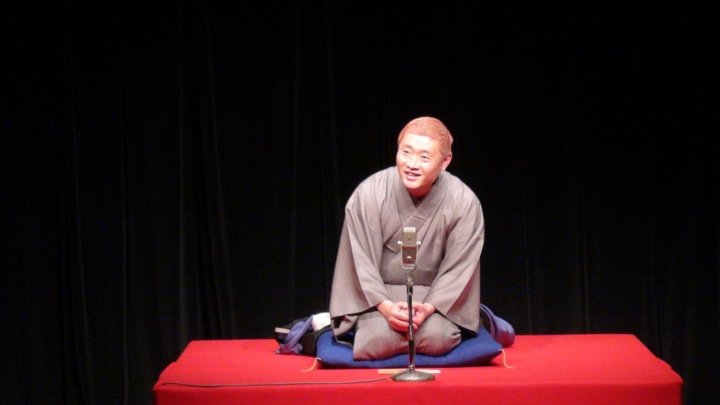
Picture courtesy of Studio Eggs
Tatekawa gives wonderfully expressive and charismatic performances, effortlessly adopting the roles of the characters he portrays in the stories he tells. These tales have been expertly adapted to be entertaining for a modern-day English-speaking audience, while also staying true to rakugo’s roots.
He connects authentically with the audience, allowing them to feel both tradition and modernity in each moment of his performance.
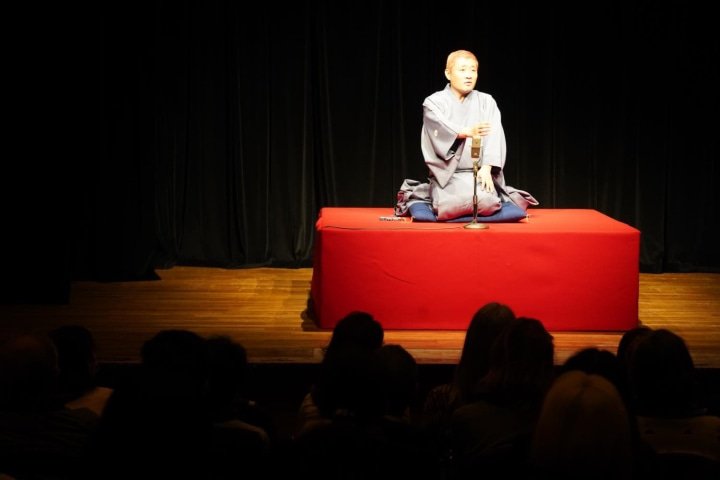
Picture courtesy of Studio Eggs
The shows offer an excellent gateway for non-Japanese speakers into the world of traditional Japanese comedy. They’re not just fun for those who aren’t fluent in Japanese though! Many of Tatekawa’s fans are bilingual English and Japanese speakers, who greatly enjoy the expression of this art form in both languages.
Though rakugo is a traditional art, it is an extremely light-hearted one! Audience members need not feel uptight or formal during shows! Do be prepared for hilarious centuries-old jokes that seem incredibly modern, as the humor still resonates with audiences today!
Watch It in Tokyo! Shinoharu Tatekawa's Rakugo in English
Shinoharu Tatekawa's English Rakugo performances will be held at Akasaka Chance Theatre and Tsukiji Hongwanji Buddhist Hall in November and December 2022.
Performance Schedule
November 21 (Monday), 19:00 at Akasaka Chance Theatre (access map)
November 25 (Friday), 15:00 at Akasaka Chance Theatre (access map)
December 15 (Thursday), 15:00 at Akasaka Chance Theatre (access map)
December 20 (Tuesday), 19:00 at Akasaka Chance Theatre (access map)
December 29 (Thursday), 15:00 at Tsukiji Hongwanji Buddhist Hall (access map)
Advance tickets are 2,500 yen; same-day tickets are 3,300 yen.
*Please note that preschool children can not be admitted.
For more information, please see Studio Egg's official site.
Read also
Written by Kat
Main image courtesy of Studio Eggs


































![[Kagoshima] Overcoming 12 Years of Hardship: Walking through Minamisatsuma City, the sacred land where the monk Ganjin landed](https://resources.matcha-jp.com/resize/720x2000/2026/02/21-259481.webp)
